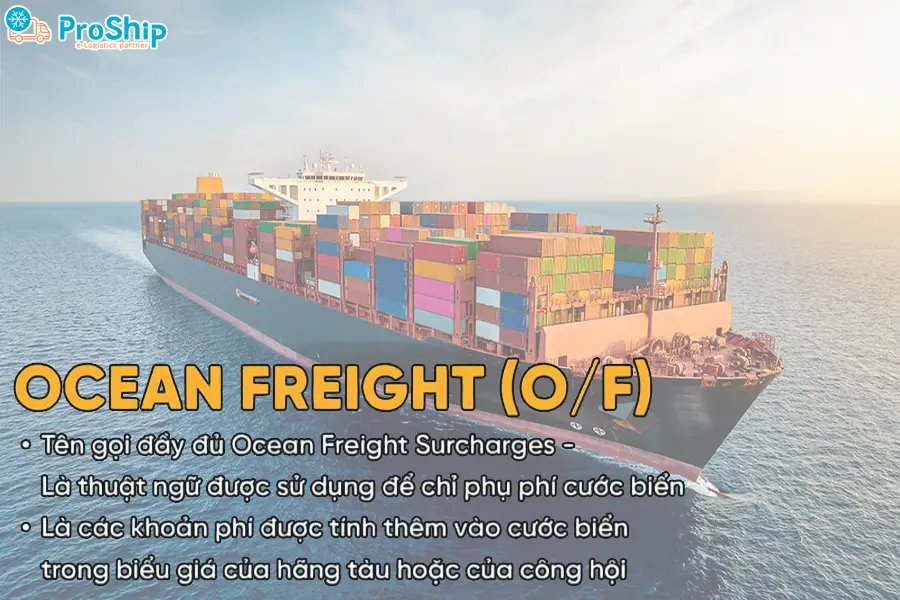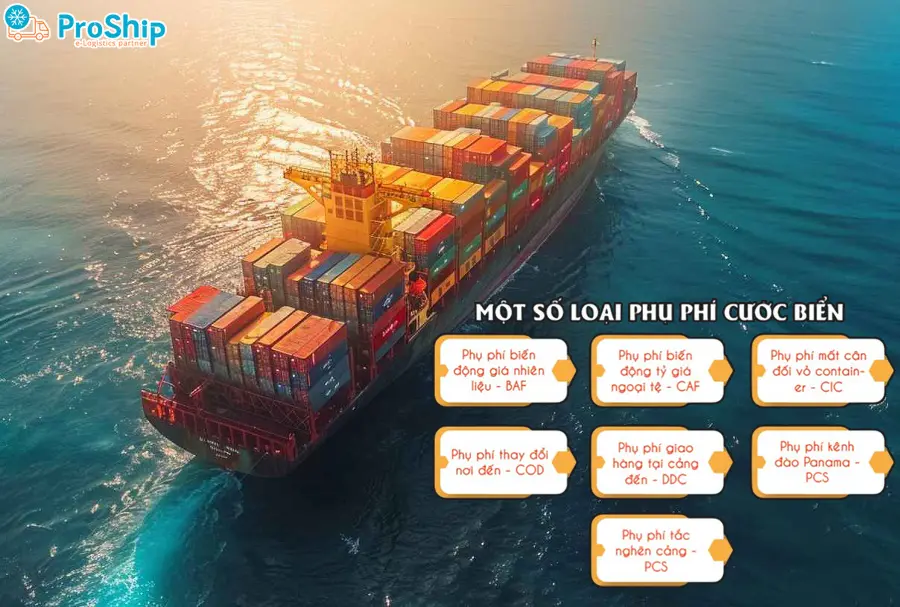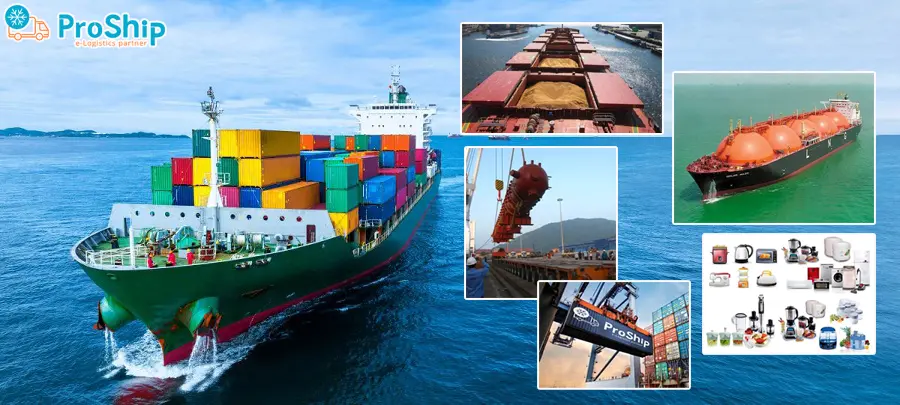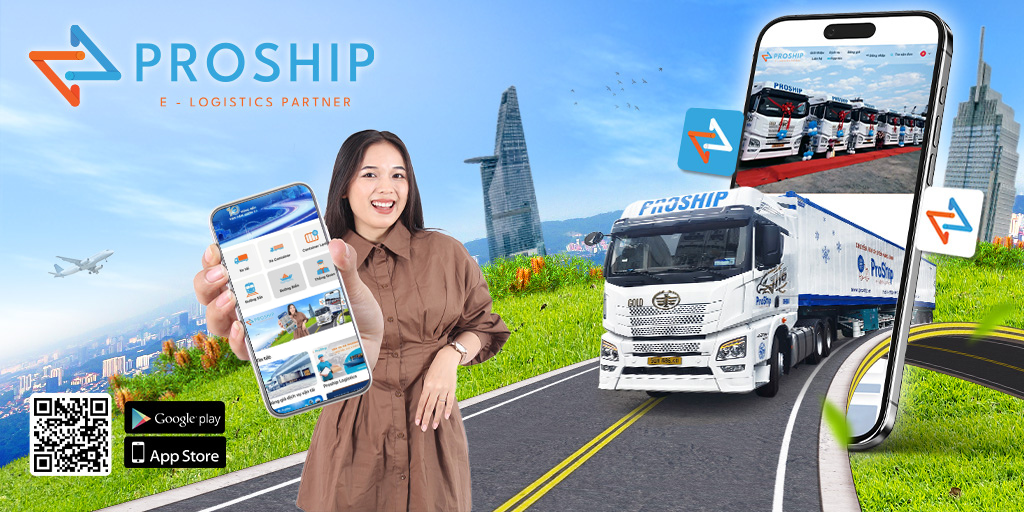x Các chủ hàng, doanh nghiệp có lô hàng XNK đường biển, cần nắm rõ các loại phí và phụ phí, trong đó có phí Ocean Freight?
x Bạn chưa biết cách tính phí Ocean Freight thế nào và thắc mắc bên nào sẽ trả phí Ocean Freight?
x Bạn muốn biết mặt hàng nào nên vận chuyển qua Ocean Freight?…Và có nên chọn một đơn vị Forwarder uy tín qua O/F?
Proship.vn chúng tôi sẽ làm rõ định nghĩa ocean freight là phí gì? Yếu tố ảnh hưởng phí ocean freight là gì? Cách tính ra sao? Bên nào chịu trách nhiệm thanh toán phí,…Qua đây, chúng tôi cũng liệt kê các loại phụ phí O/F thường gặp cũng như lý do nên chọn sử dụng Dịch vụ Forwarder qua ocean freight.
Ocean Freight O/F là gì?
Ocean freight là phí gì? Ocean Freight, viết tắt là O/F, là thuật ngữ quen thuộc trong lĩnh vực logistics và vận tải biển. Trong định nghĩa tiếng Anh, nó đơn giản chỉ vận tải đường biển nhưng O/F surcharges là để chỉ phụ phí đường biển.
Vậy nên, thường Ocean Freight đề cập đến các chi phí cơ bản liên quan đến việc vận chuyển hàng hóa bằng đường biển từ một điểm đến điểm khác.

Phụ phí cước biển (O/F) trong vận tải biển không cố định, có thể thay đổi tùy chính sách hãng tàu. Khi có sự điều chỉnh về phụ phí cước biển, hãng tàu sẽ thông báo cho người gửi hàng trước khi áp dụng chính thức.
Ai là người phải trả khoản phí Ocean freight?
Bạn đã biết, Ocean freight là phí gì? Vậy, ai là người phải trả phí O/F? Phí Ocean Freight được trả bởi người mua hay người bán là tùy điều kiện giao hàng theo Incoterms mà hai bên thỏa thuận trong Hợp đồng ngoại thương. Từ đó, hãng tàu sẽ thu phí O/F người gửi hàng (Shipper) hoặc người nhận hàng (Consignee).
Nếu hai bên không có thỏa thuận gì thêm trong Hợp đồng ngoại thương, người trả phí Ocean Freight sẽ quy định:
- Người nhận hàng (Consignee) trả cước:
Nếu trong hợp đồng ngoại thương ký kết với các điều kiện giao hàng loại E (EXW) và loại F (FCA, FAS, FOB);
- Người gửi hàng (Shipper) trả cước:
Nếu trong hợp đồng ngoại thương ký kết với các điều kiện giao hàng loại C (CIP, CPT,CFR) và loại D (DDP, CIF, DAT, DDP).
Song trên thực tế có thể sẽ thay đổi ít nhiều tùy thỏa thuận khác đi kèm của các bên mua bán.
Cước phí ocean freight O/F ảnh hưởng bởi yếu tố nào? Cách tính ra sao?
Proship sẽ chỉ ra các yếu tố ảnh hưởng tới cước ocean freight là gì và cách tính phí này ra sao cho doanh nghiệp, chủ hàng nắm rõ:
Các yếu tố ảnh hưởng đến cước O/F
Yếu tố ảnh hưởng trực tiếp tới cước phí O/F:
- Giá nhiên liệu: Biến động giá nhiên liệu có thể ảnh hưởng đến chi phí hãng tàu và giá cước;
- Cân bằng cung cầu: Giá cước có thể thay đổi theo tình hình cung cầu trên các tuyến đường cụ thể;
- Biến động nhu cầu theo mùa: Một số tuyến đường có nhu cầu vận chuyển tăng cao trong mùa cụ thể, làm tăng giá cước;
- Tỷ giá ngoại tệ: Biến động tỷ giá ngoại tệ có thể làm thay đổi giá cước.
Cách tính cước ocean freight O/F
Cước O/F ocean freight được tính dựa trên:
- Tuyến thương mại: Các tuyến cụ thể có thể có mức giá khác nhau;
- Trọng lượng/thể tích hàng hóa: Một số hãng tàu tính cước theo trọng lượng (kilogram) hoặc thể tích khối (cubic meter – CBM);
- Khoảng cách di chuyển: Khoảng cách từ điểm gốc đến điểm đích ảnh hưởng đến giá cước;
- Kích thước container: Container 20ft, 40ft, 45ft có giá cước khác nhau;
- Loại hàng hóa: Hàng khô, hàng lạnh, hàng nguy hiểm có thể giá cước sẽ khác nhau.
Với hàng hóa cỡ lớn được tính theo công thức:
O/F = (Dài x rộng x cao) x Số lượng
Các loại phụ phí Ocean Freight thường gặp
Các phụ phí thường gặp với hàng xuất, hàng nhập ocean freight là gì? Dưới đây là phụ phí O/F mà chủ hàng phải trả, ngoài cước biển:
Phụ phí O/F đối với hàng nhập khẩu
Với hàng nhập sẽ có các phụ phí O/F:
- Phí CFS (Container Freight Station fee): Phí này chỉ thu với hàng lẻ – LCL;
- Phí CIC (Container Imbalance Charge): Phụ phí vận chuyển vỏ cont rỗng;
- Phí CCF (Cleaning Container Fee): Là phí vệ sinh container;
- Phí D/O (Delivery Order fee): Phí phát lệnh giao hàng;
- Phí Handling (Handling fee): Phí làm hàng liên quan chứng từ, giao nhận;
- Phí THC (Terminal Handling Charge): Phí THC tại cảng nhập khẩu.
Phụ phí O/F đối với hàng xuất khẩu
Với hàng xuất sẽ có các phụ phí O/F:
- Phí AFR (Advance Filing Rules): Là phí khai Manifest bằng điện tử cho hàng hóa nhập khẩu vào Nhật;
- Phí AMS (Advanced Manifest System fee): Phí này là bắt buộc do hải quan Mỹ, Canada và một số nước khác yêu cầu khai báo chi tiết hàng hóa trước khi hàng hóa này được xếp lên tàu để chở đến Mỹ, Canada,…;
- Phí B/L (Bill of Lading fee): Phí phát hành B/L;
- Phí CFS (Container Freight Station fee): Chỉ thu đối với hàng lẻ – LCL;
- Phí EBS (Emergency Bunker Surcharge): Là phụ phí xăng dầu cho các tuyến hàng đi châu Á;
- Phí ENS (Entry Summary Declaration): Là phí khai Manifest tại cảng đến cho các lô hàng đi châu Âu (EU);
- Phí THC (Terminal Handling Charge): Phí THC tại cảng xuất khẩu;
- Phí seal: Phí trả cho hãng tàu để mua seal niêm phong cho container.

Các loại phụ phí khác
Các phụ phí khác như:
- Phí BAF (Bunker Adjustment Factor): Phụ phí thu bù cho phát sinh từ phí nhiên liệu;
- Phí CAF (Currency Adjustment Factor): Phụ phí biến động tỷ giá hối đoái;
- Phí PCS (Port Congestion Surcharge): Phụ phí tắc nghẽn cảng;
- Phí PSS (Peak Season Surcharge): Phụ phí mùa cao điểm;
- Phí SCS (Suez Canal Surcharge): Phụ phí qua kênh đào Suez;
- Phí LSS (Low Sulfur Surcharge): Phụ phí giảm thải lưu huỳnh.
Mặt hàng thường vận tải và lợi ích khi sử dụng dịch vụ FWD qua O/F
Proship liệt kê các mặt hàng thường vận tải và lợi ích khi sử dụng dịch vụ Forwarder qua O/F sau đây:
Mặt hàng hay vận tải qua Ocean Freight
Những mặt hàng thường vận tải qua ocean freight là gì? Đó là:
- Hàng hóa có giá trị thấp: Quần áo, đồ gia dụng, giày dép,…;
- Hàng dễ bị tác động bởi môi trường: Thuốc lá, chè, gia vị,..;
- Hàng hóa không ảnh hướng tới các lô hàng khác: Máy móc, trang sức, thiết bị công nghiệp và nguyên vật liệu,…;
- Hàng có tính chất lý hóa: Dung dịch, hóa chất độc hại, xăng dầu, các loại bột,…;
- Hàng hóa lỏng: Hóa chất, dầu mỏ, thực phẩm lỏng,…;
- Hàng rời: Than đá, quặng…

Lợi ích khi sử dụng dịch vụ FWD
Sử dụng dịch vụ Forwarder sẽ giúp doanh nghiệp tiết kiệm chi phí. Bởi các Forwarder sẽ tìm được phương thức, tuyến đường vận tải tốt và hãng vận chuyển phù hợp nhu cầu của doanh nghiệp. Đồng thời, Forwarder còn thu xếp nhiều lô hàng nhỏ để đóng ghép và vận tải tới điểm đích nên sẽ giảm chi phí cho chủ hàng.
Nếu bạn có nhu cầu sử dụng dịch vụ của Forwarder nên cân nhắc chọn PROSHIP LOGISTICS. Chúng tôi tự hào là đơn vị chuyên cung cấp các Dịch vụ vận tải biển giá cạnh tranh, an toàn, hiệu quả và nhanh chóng.
Proship Logistics đã giải đáp Ocean freight là phí gì, mặt hàng vận chuyển qua ocean freight là gì, bên nào phải trả phí O/F, các loại phụ phí O/F thường gặp là gì,…Dựa vào đây, các doanh nghiệp, chủ hàng có thể dự trù, tính toán trước phí cố định hay phí phát sinh trong quá trình vận tải biển.
Mọi thắc mắc liên quan, vui lòng liên hệ 0909 344 247 để được giải đáp và tư vấn các giải pháp Vận chuyển container đường biển Nội địa hoặc Quốc tế từ Cảng – Cảng, Cảng – Kho giá rẻ tốt nhất.

